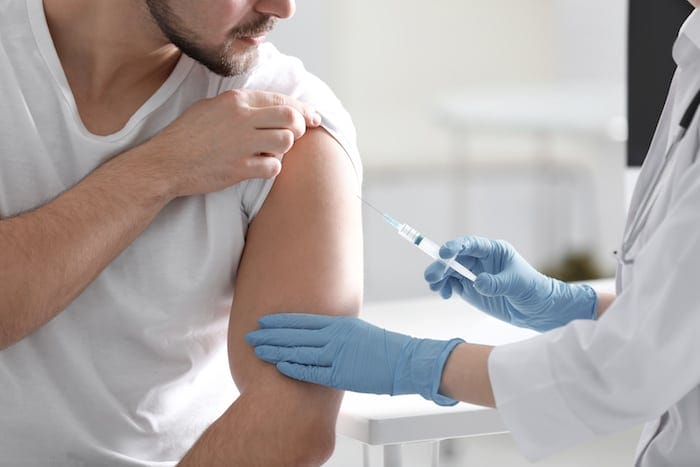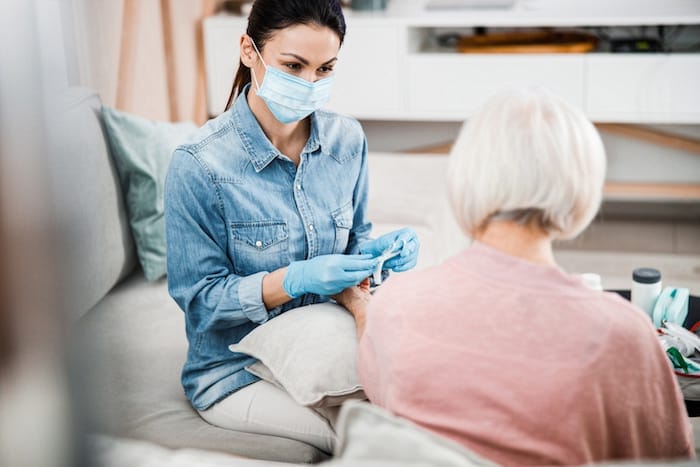As of late, many individuals may be scrambling to catch up with their vaccines. As the coronavirus continues to scare the entire world, vaccines have become everyone’s line of defense.
Unfortunately, many adults today mistakenly think they’re up-to-date with their vaccines, when in fact they aren’t. Most people will stop having their vaccines once they reach their teenage years. Whether an adult needs a vaccination depends on risk factors such as age, gender, lifestyle and even travel plans. More so, some vaccinations must be done yearly, regardless of your risk factors.
Vaccines aren’t just for teary-eyed children who bravely enter doctors’ offices for their regular shots. Even brave, fully grown adults need it, too. Here’s why:
1. For Immunity Against Vaccine-Preventable Diseases
Diseases caused by viruses and bacteria are still very much prevalent today. However, many of these diseases can be prevented when you’re vaccinated against them. This means that even if you’re exposed to them, your risk of catching any of them is considerably lowered when you’ve been vaccinated. Many of these diseases are airborne and can be transmitted from one person to another—all the more reason you’ll benefit from vaccines.
Some examples of vaccine-preventable diseases are:
- Diphtheria, a severe infection caused by poison-producing bacteria; it spreads through coughing, open wounds and sneezing.
- Pneumococcal infections are caused by common bacteria that attack a person’s respiratory system (causing pneumonia), bloodstream (causing sepsis), and brain covering (causing meningitis).
- Tetanus (or lockjaw) happens through exposure to bacteria that create a toxin which causes a painful tightening of muscles and can lead to death.
- Influenza, probably the most well-known contagious viral infection, affects the respiratory system, causing trouble breathing, severe aches, and fever.
- Pertussis (or whooping cough) is caused by a bacterium that’s highly contagious and causes violent coughing, making it hard to breathe.
If any of these diseases are present in your local area or if you’re having an outbreak in the community, you should review your medical records and see if your latest vaccine still protects you. Otherwise, schedule an appointment for vaccination. In doing so, you’ll also know which vaccines you’ll need.
2. You May No Longer Be Protected
Not all vaccines give you a lifetime immunity from just one shot. For full protection, you’ll need a series of vaccines for some diseases. Depending on when you’ve last had a certain vaccine—for example, for tetanus—you may risk no longer being protected.
Learn more about vaccination and immunization here.
For some diseases, like influenza, you need a yearly vaccination. For others, like tetanus and pertussis (whooping cough), you need to have a booster shot every 10 years. If you’re not sure when last you had an important vaccine, check with your doctor.
Vaccination is especially important for women who plan to get pregnant. You must know whether you’re up-to-date with vaccines against diseases that could be harmful to you and your baby. You must have these vaccines done before getting pregnant, as your doctor won’t administer it during or shortly after your pregnancy, especially while you’re breastfeeding.
Some vaccine-preventable infections are deadly. If you want to protect yourself against a premature death, have your vaccines done.

3. You Will Stay Healthy
Even without a health crisis in your local area, you still need vaccines to stay healthy. When you skip vaccines, you’re more vulnerable to catching even common illnesses such as pneumonia and the flu.
Vaccinations, coupled with a healthy lifestyle, diet and regular exercise, will help you stay healthier all year round. Vaccines are also cheaper than hospital bills for medical emergencies related to preventable diseases.
4. You Are Protecting Your Household Members
If you’ve got kids and infants in your household that are still too young to receive certain vaccines, then their first line of protection is through you being vaccinated.
If you get sick, they’re highly likely to catch the same illness from you. This creates a more pressing need for you to get immunity protection through vaccines. When you’re protected, you’re giving that immunity to your children as well.
Conclusion
All these reasons taken into consideration, it’s safe to conclude that vaccines are needed for adults in the same way as for children. Every year, tens of thousands of people die from diseases that could have been prevented easily through vaccinations.
If you know that you aren’t updated with your necessary vaccines, then now’s an excellent time to do them. Visit your trusted doctor to give yourself this umbrella of protection against preventable diseases.
Throughout the year, our writers feature fresh, in-depth, and relevant information for our audience of 40,000+ healthcare leaders and professionals. As a healthcare business publication, we cover and cherish our relationship with the entire health care industry including administrators, nurses, physicians, physical therapists, pharmacists, and more. We cover a broad spectrum from hospitals to medical offices to outpatient services to eye surgery centers to university settings. We focus on rehabilitation, nursing homes, home care, hospice as well as men’s health, women’s heath, and pediatrics.








